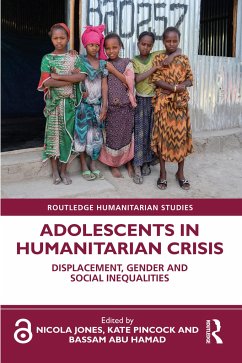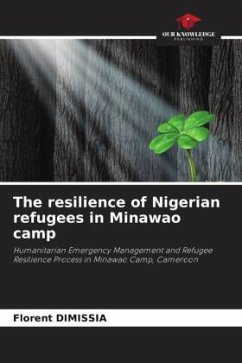
Crisis Management Beyond the Humanitarian-Development Nexus
Versandkostenfrei!
Versandfertig in 1-2 Wochen
56,99 €
inkl. MwSt.

PAYBACK Punkte
28 °P sammeln!
In addressing humanitarian crises, the international community has struggled in making the transition from short-term relief to long-term rehabilitation and crisis prevention. This book aims to shed light on this continuum of humanitarian crisis management, and should interest researchers of humanitarian studies and disaster risk-management.














